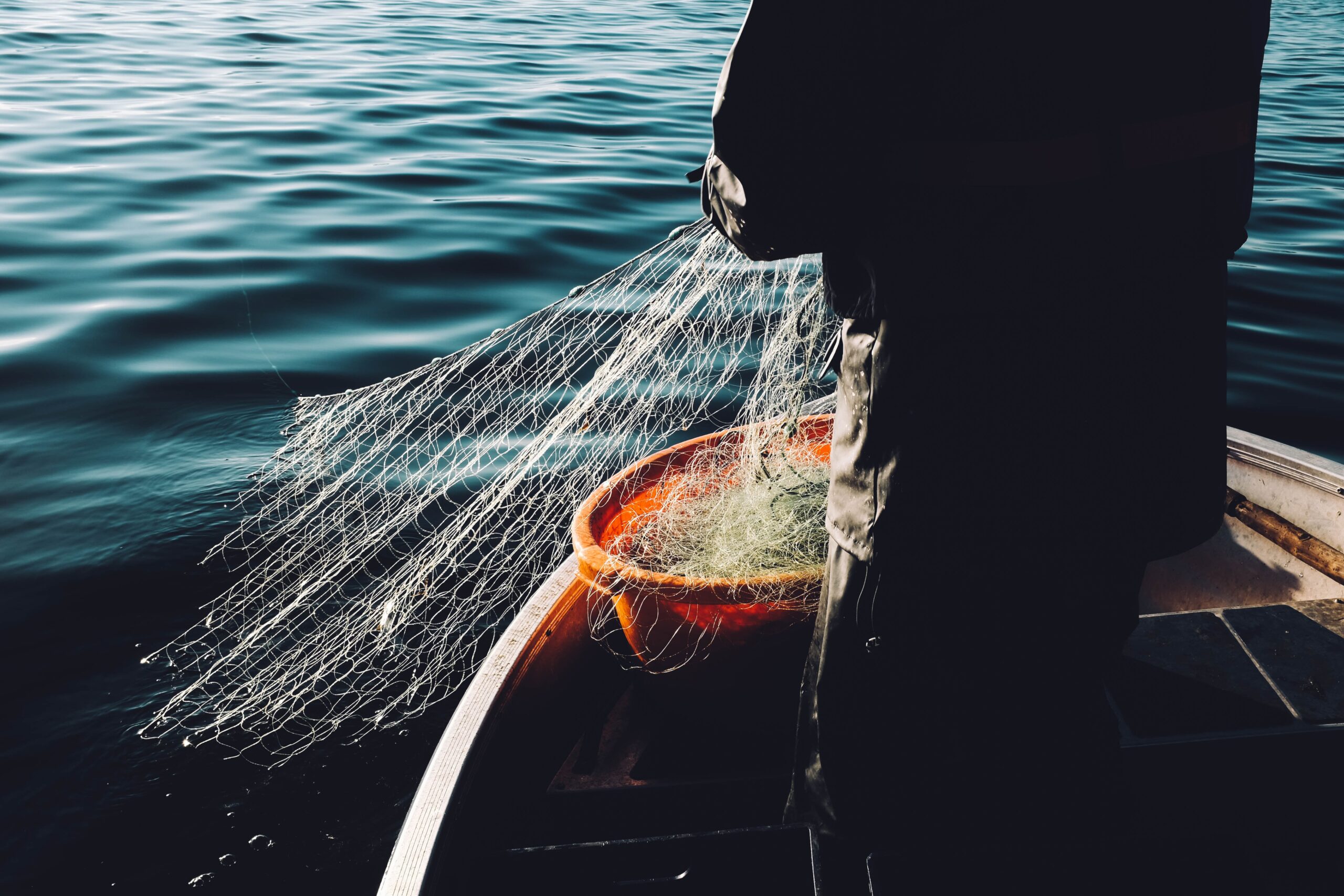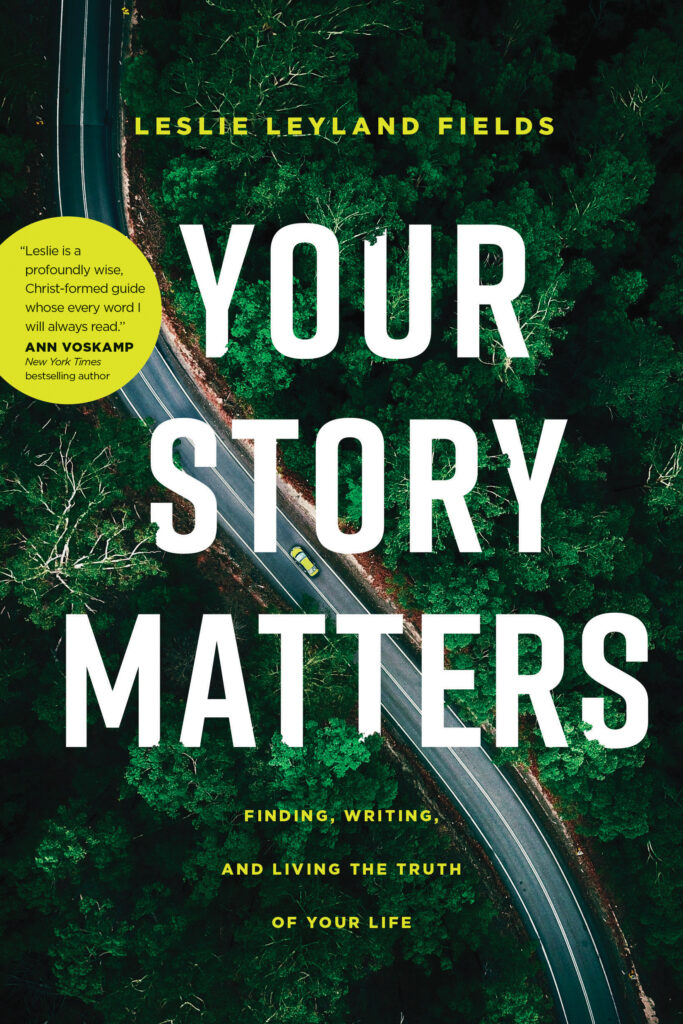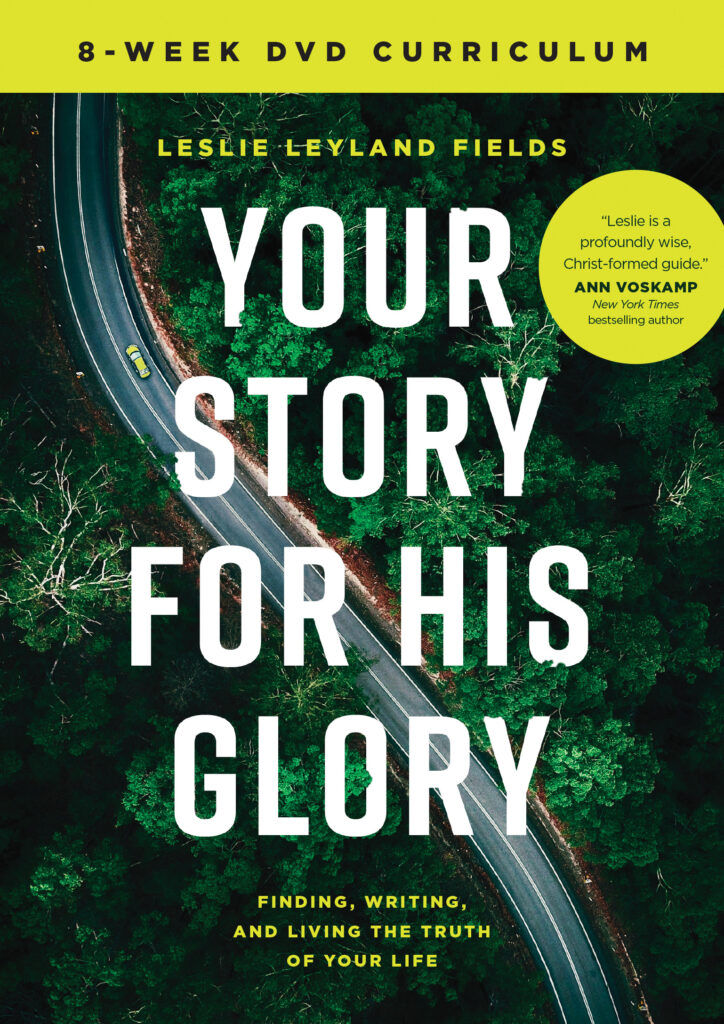Sometimes it’s hard to write about something we know well.
We all have pieces of our lives that are so familiar to us, we don’t even know what we know.
And then we assume our readers know what we don’t know we know. We skip some of the pieces they need to see, hear, taste, touch to be there with us. And our knowledge and experience is not always verbal. It may be a body knowledge. It might be a vocabulary of muscle and tendons. So it was for me. I had to stop, engage my body in the composition of those pages.
- How did I stand in the skiff?
- How did I first step into those hip-high rubber boots?
- How did I lean over to catch the net?
1. Get Closer to the Action
I started writing scenes of my first time actually working with my husband in the skiff. I was writing fifteen years later from that first day, but I had journals, and those early memories were sharp. I remembered the process of getting dressed, with layer upon layer of sweat shirts, hip boots, rain pants, finally layered so thick and heavy, I could hardly walk. Kind of a backwards Pygmalion story, the real person submerged under inches of fishing gear.
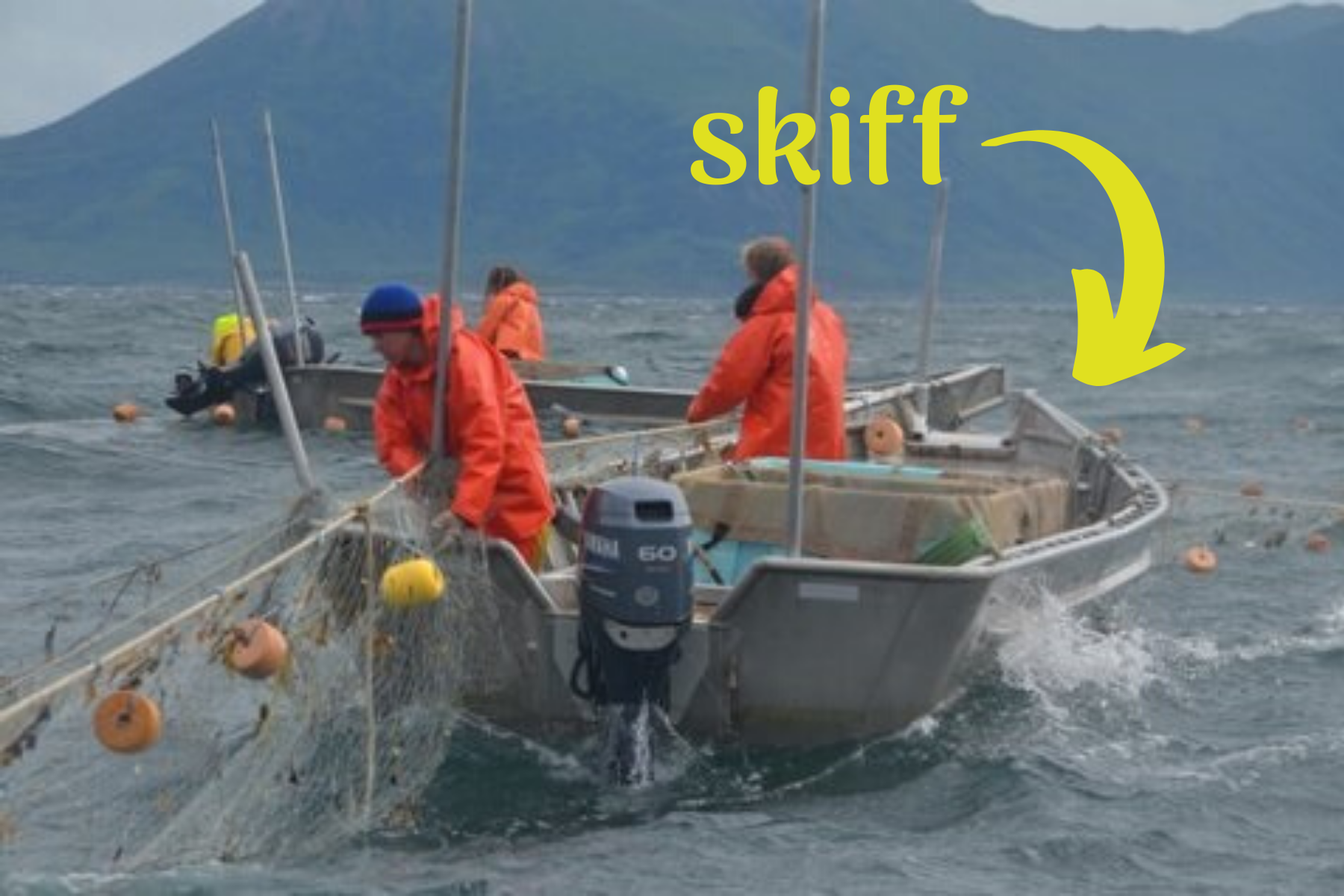
Then I thought of my first snack and bathroom break on the water, on an eighteen-foot open boat. There’s no latrine, of course, on a boat that size. We worked all morning until it was nearly lunchtime. Duncan and his father, DeWitt, brought out the snacks from under the seat—candy bars and pop. For their bathroom break in the skiff, they asked me to turn around. For mine, I was dropped off on a rocky ledge. But it wasn’t quite that simple.
But you don’t care about any of that, right? I don’t either. I just gave you information. I told you what you needed to know, but you weren’t with me. I just gave you words about a time and a place far from wherever you live.
So let me try again, this time as a scene:
It’s almost noon now. We’ve been fishing for four hours. I sit wearily on the wooden seat, looking at the fish on the floor of the skiff. There must be five hundred of them, all fat and shiny. The waves slap and slosh our skiff from side to side. I’m hungry. And I need a bathroom break, but how does this happen in an eighteen-foot boat? There is no cabin on our little wooden peapod. It’s just a glorified rowboat afloat on a great Alaska sea.
DeWitt sits heavily in the bow, his black-green raincoat mirroring the dark water below. “Well, I guess I’ve gotta shake the dew off my lily,” DeWitt intones in a gravelly voice. I can hear his Oklahoma accent, though he left forty years before, during the dust bowl. He grew up poor, picking cotton and working the land. Now he works the seas, but he moves awkwardly in the boats and never seems at home on moving water. Except now.
I smile at Duncan and DeWitt and turn around. When they’re done, it’s my turn.
“Let me off on that rock over there, Duncan.” I point to a cove with a shelf of rock jutting out. In a moment we are there, the skiff rising and plunging in the waters swirling around the rocks. I’m nervously perched in the bow, ready to spring overboard at just the right second. My hands twitch as they grip the rail. I’m motionless but breathing hard.
“Jump!” Duncan yells as the nose of the skiff rises in the foaming surge.
“You’re not close enough!” I shoot behind me. I see DeWitt sitting calmly beside Duncan as if we’ve done this a hundred times.
“I can’t get any closer! Jump!” he shouts as the boat gurgles and sinks now in the trough.
I can’t leap that distance in all this fishing gear. And if I miss? How did a simple bathroom break become a life-and-death endeavor?

Do you feel closer to the action?
I hope you feel as though you’re perched right there beside me in the skiff, waiting to vault overboard.
2. What about dialogue?
It’s a question that always comes up in scene-making. How can we remember exactly what people said, especially if the story happened fifty years ago? Often, we can’t. (Unless it’s your father-in-law, who used memorable language and the same phrases again and again.) You may not remember precisely what your sister said before she ran away, or the exact words between you and your mother when you returned to your house after the fire. We may not be able to reconstruct the exact words, but memories lodge for a reason. We often remember the tone, the sense, and the import of those words. That’s all we have, any of us, unless we happened to pull out a tape recorder or a video camera during the fight, after the fire, during any of those times when the hardest, the best, and the most banal words passed between us and another. Render dialogue as closely and as fairly as you can. It will be enough.
But if your memories of a particular exchange are thin and uncertain, there’s another solution: Don’t use dialogue. There are many other ways to convey the scene: “I don’t remember my grandmother’s voice or even her words that night, but after supper, when everyone left the table, she talked to me about going to college. She believed in me more than anyone else in my family.”
3. Scene and Summary
Writers have been rendering scene and summary for a long time. More than half of the gospels in the Bible are scenes. Much of the Old Testament is made of scenes. How did those ancient authors (who didn’t read a book on writing) know this, that we needed not some dusty account of who did what, when, where, and how, but full immersion, full attachment to those events, no matter how distant?
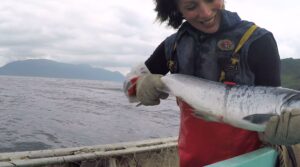
As I remembered and wrote about my first day in fishing, as I wrestled verbs and adjectives to capture the sound of the water against the wooden skiff, the feel of the salmon between my fingers, the plunge of the skiff by the rock, I remembered more. I remembered something about my father-in-law, which has since become one of my favorite recollections of him.
We’ve missed lunch. We’ve declared a snack break, retrieving the candy bars from under the wooden seat of the skiff. Dewitt sits now, his head down, his hat askew on his head, munching his Snickers. I’m eating the same, both of us rocking in the slap of the waves against the skiff. He appears to be studying the salmon, lying askew at our feet. Then he looks up at me and says, straight into my eyes, “Those are beautiful fish, aren’t they?” I nod in surprise. He leans over, grunting, and picks one up with both gloved hands, holding the silver body out lengthwise in front of him. With the wonder of a boy, he shakes his head: “Beautiful fish.”
I look at him, trying to hide my amazement. DeWitt has seen and smelled and handled these fish for twenty years. He came to fishing in his forties and now he’s in his sixties, when most people are beginning to fade. When most people begin to grow old. How is it that after twenty years of seeing and smelling and handling these creatures, he can still see them? Why hadn’t they turned into faceless objects, or pieces of money? I hoped then that in twenty years, I could do the same.
I want the same for you. It might be the wind in your ears as your family drove to your camp, how cold the river was when you fell in, the sound of your mother laughing, what your brother said, and how you burned the trout at dinner and your father ate it all before launching you, hollering, into the river one last time. Live it again. Write it. Take your readers with you into this world of glorious bodies. It’s okay to make a scene and tell them a real Story.

